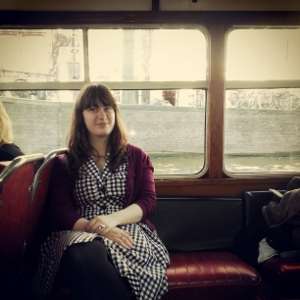This fall the Rotterdam Philharmonic have a series of concerts under the title of “Russische Herfst” (“Russian Autumn”) – with music from some of the great Russian composers such as Mussorgsky, Rimsky-Korsakov, Prokofiev and Shostakovich. The opening night revolved around Pjotr Ilyich Tchaikovksy – the orchestra played two pieces, the First Piano Concerto and Fourth Symphony and ensured a great beginning to the series.
Tchaikovksy’s First Piano Concerto is one of his most well-known works, and with good reason. It is extremely powerful and energetic, constantly keeping the listener on the edge of their seat, while also containing many incredible melodies and a beautiful slow movement. The piece consists of three movements, opening with loud chords that soloist Denis Matsuev mercilessly pounded out. At times his playing was too abrasive, some of the nuance of the piano part was lost and it was definitely the calmer section where Matsuev excelled. The orchestra and soloist only seemed to truly connect in the third movement – they became tighter and more intense, and the rhythmical nature of the movement was embraced by both soloist and orchestra, leading up to an exciting finale.
Tchaikovksy’s Fourth Symphony is one of the highlights of the symphonic repertoire. Written in the late 19th century, it still sounds as fresh today as it must have done at its première (though it is certainly more well-loved now than it was then). The symphony is dedicated to Tchaikovksy’s patroness Nadezhda von Meck, with whom he had a fruitful but rather distant relationship (they never met), and at her request Tchaikovksy wrote program notes explaining the symphony. Of course these notes should not be taken too literally – Tchaikovksy was all too aware of the difficulty of explaining music in words. But because of his explanations the opening theme is still described as representing Fate, a fate that is inescapable, something that one must resign oneself to. And indeed, the symphony is not a hopeful one, although there are certainly some upbeat moments, especially in the third movement, played entirely pizzicato, which create the image of a slightly drunk night out. The opening “Fate” theme is played very strongly by the brass section, and it is not until the clarinet develops a second theme that we can breathe more easily. The second movement opens with a beautiful melody in the oboe, and it was here that the woodwind section of the Rotterdam Philharmonic showed just how good they really are, not only hitting every note perfectly but achieving a passion and emotion that lifted the performance from good to amazing. The fourth movement of the symphony can, in certain performances, seem almost like a caricature – too loud, bombastic and (deceptively) joyous, but the Rotterdam Philharmonic played it in such a way that everything was as it should be, loud, but not too loud, pompous but never too pompous, and the undercurrent of Fate was constantly felt.
The Rotterdam Philharmonic have been described by The Times as being the best Russian orchestra west of Minsk (a quote they often like to repeat), and this performance of the Fourth Symphony certainly makes you understand where they are coming from. I cannot imagine a better performance of this monumental symphony and this opening concert has made me very excited about the rest of the Russian concerts the Rotterdam Philharmonic will be playing this fall.


